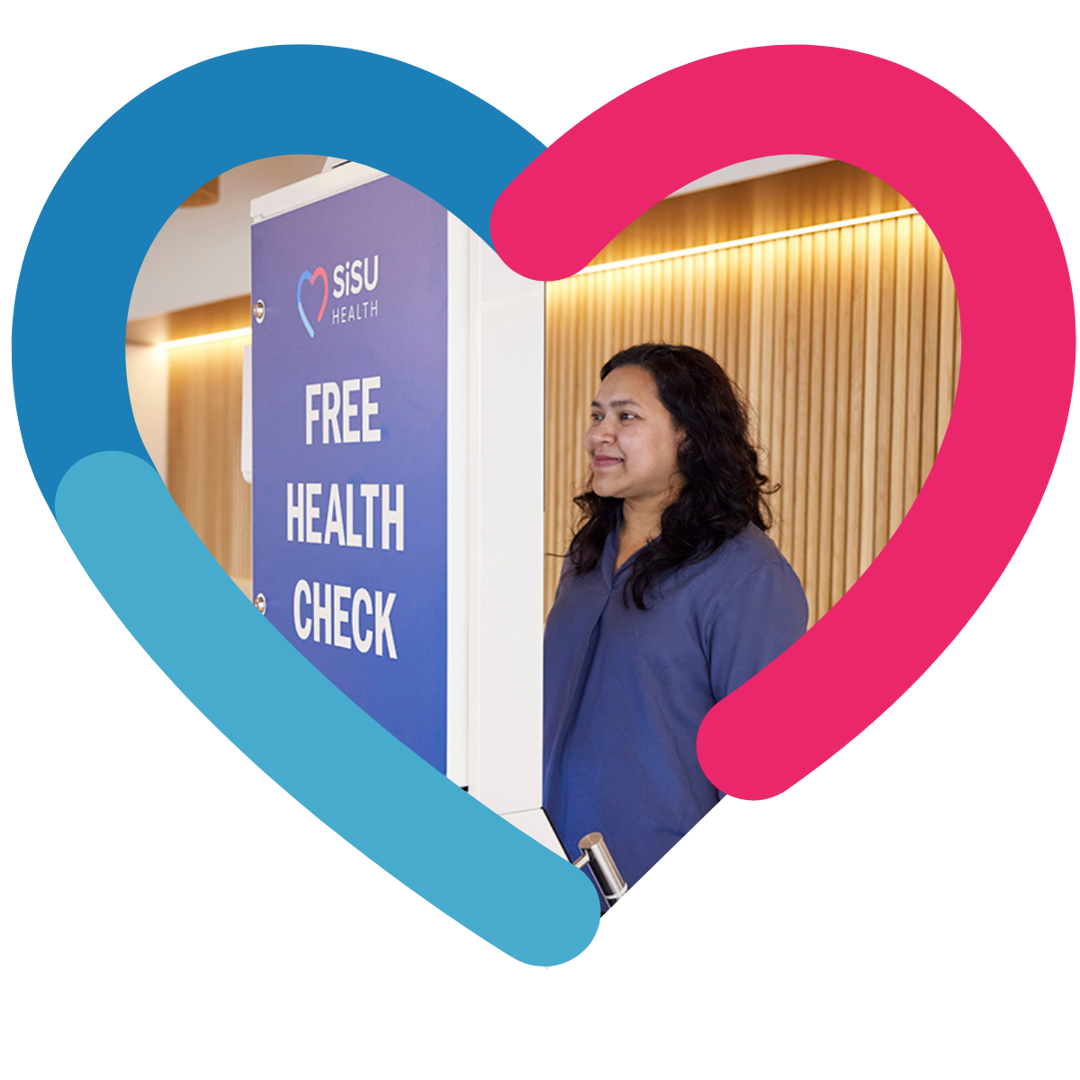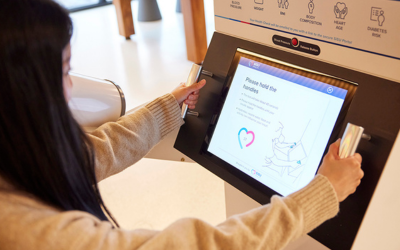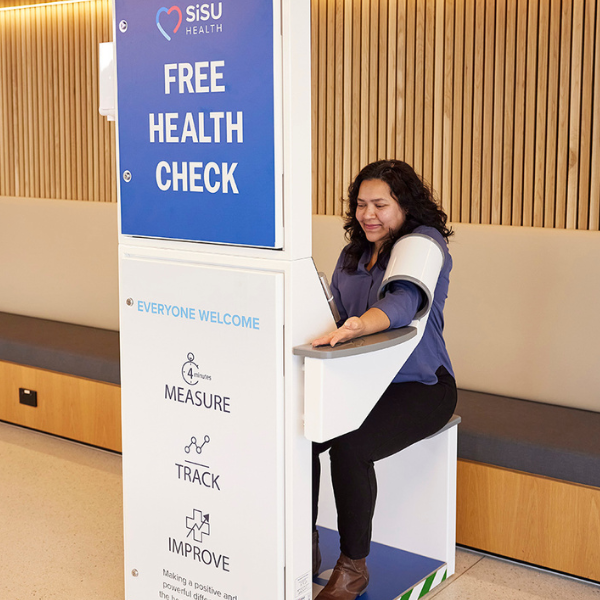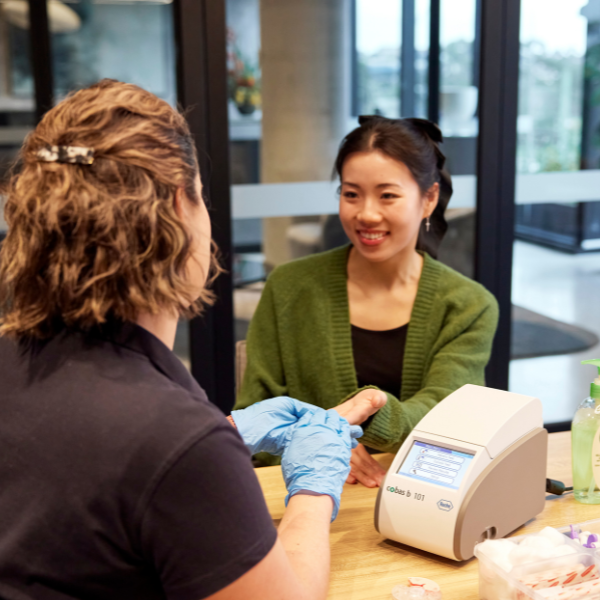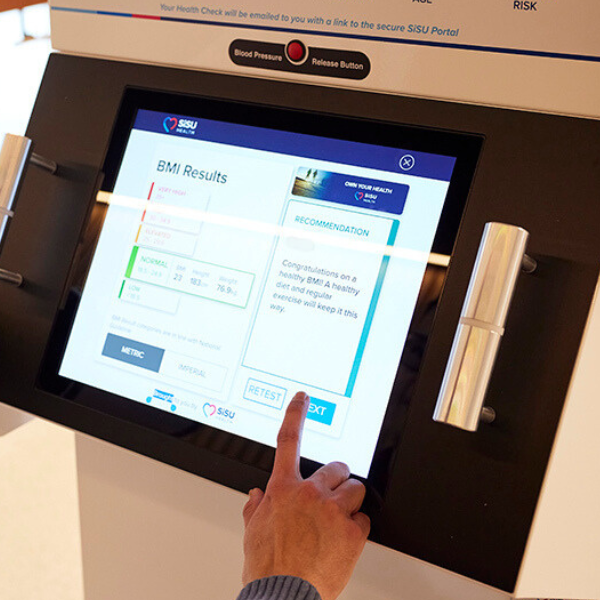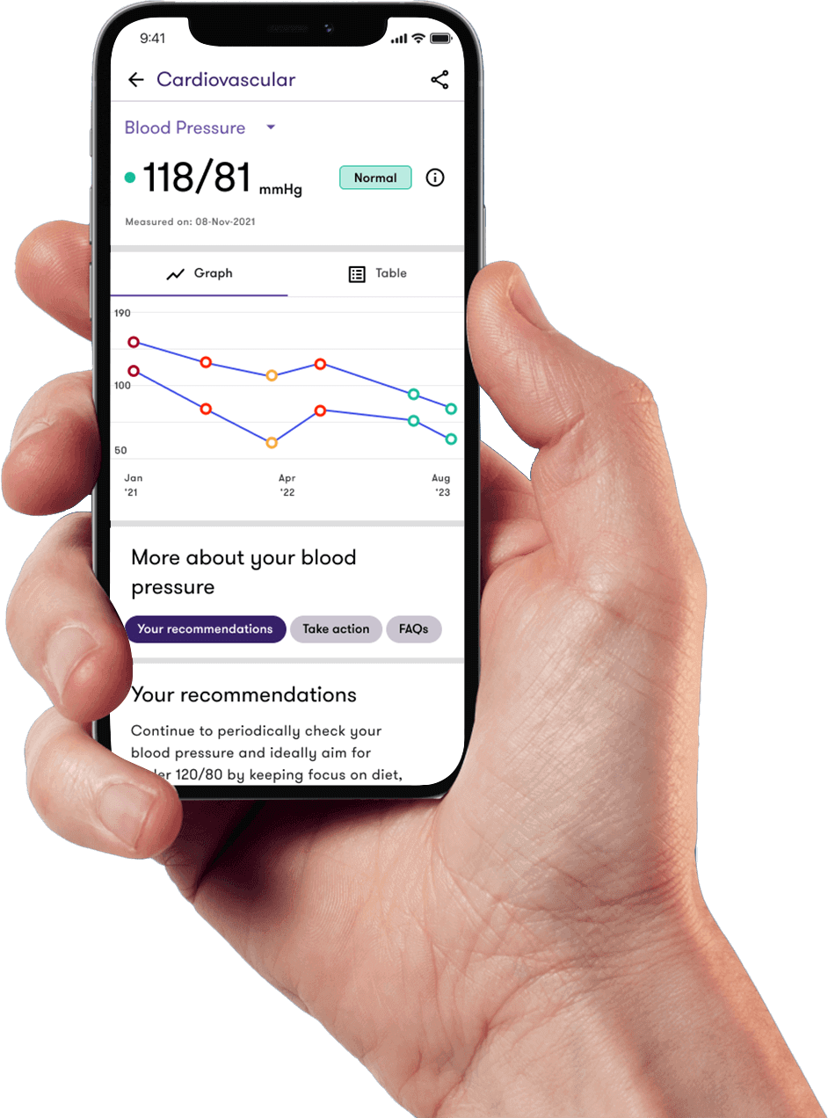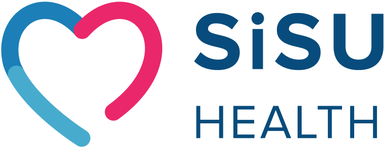Hormones and your heart
More than just (peri)menopause
Your hormones and heart are more connected than you might think.
Perimenopause and menopause don’t just bring symptoms like hot flushes, brain fog and mood changes – your long-term health can also be affected and your risk of cardiovascular disease can increase[1].
For many women, perimenopause begins in their 40s. There are over 20 physical, mental and emotional symptoms that indicate perimenopause may have commenced[2]. This includes brain fog, anxiety, feeling overwhelmed, mood swings, sleep problems and more. All these might be overlooked or dismissed when you’re busy working and raising a family.
Research shows that blood pressure, cholesterol and body fat distribution often. Begin to change during perimenopause, not just after the final period. Women experiencing frequent hot flushes, night sweats or poor sleep during perimenopause may already be showing signs of higher cardiovascular risk[3].
Many women are unaware of the links between menopause and heart health.
Research shows that blood pressure, cholesterol and body fat distribution often. Begin to change during perimenopause, not just after the final period. Women experiencing frequent hot flushes, night sweats or poor sleep during perimenopause may already be showing signs of higher cardiovascular risk[3].
Menopause marks more than the end of fertility. It’s a pivotal stage in a women’s life that significantly influences her long-term heart and metabolic health. But the good news is, there’s lots of ways to help look after your heart health.
3 ways to manage your heart health in menopause
1. Regular Health Checks
High blood pressure often has no symptoms, so getting regular checks is one of the best ways to know if there are changes early and get timely treatment. You can get a Free Health Check at over 300 Priceline Pharmacies on the self-service SiSU Health Station, to measure;
- Blood pressure and heart rate
- Height, weight and body mass index (BMI)
- Body composition
- Type 2 diabetes risk (using the AUSDRISK assessment tool)
Your results will be securely stored in the free SiSU Health App, allowing you to measure and track results over time to help you notice any changes to your key health metrics.
It is also recommended to see a GP to check your cholesterol and blood sugar levels.
At your GP appointment, be open about any symptoms, physical or emotional, you’ve been experiencing.
Helpful resources for your GP appointment:
- Her Heart’s GP checklist for discussing perimenopause and heart health
- Jean Hailes menopause symptom tracker to fill out and bring to your appointment.
Every women should trust their intuition regarding their body and finding a healthcare practitioner that they feel comfortable with.
- The Australian Menopause Society has a page dedicated to helping women find a GP educated in menopause.
- Another option would be to have a phone consultation with an InstantScripts doctor who is experienced in menopause and perimenopause management.
Many women report feeling unheard when they raise perimenopause symptoms with their doctor. If this happens to you, remember, it’s okay to get a second opinion.
2. Manage Weight
Women between the ages of 45 and 55 gain about half a kilogram per year[4]. Weight gain around the stomach (visceral fat) is particularly concerning as it increases the risk of heart disease, type 2 diabetes and certain cancers.
Hormonal changes can affect motivation to eat well and exercise, just as they can at certain points in the menstrual cycle. Staying active and maintaining a balanced diet can help reduce visceral fat and protect your heart.
Please note: Always speak with a healthcare professional before making significant changes to your diet or exercise routine.
3. Symptoms to watch out for
Women’s heart attack symptoms can be different from men’s and may be overlooked.
Female heart attack symptoms include[5]:
- Shortness of breath.
- Unusual tiredness or weakness.
- Chest pressure or discomfort (not always severe pain)
- Feeling sick, dizzy or light-headed.
- Pain or discomfort in the neck, jaw, shoulders, back and arms.
Listen to your body and stay on top of any changes. If you experience one or more of these symptoms, then you should get immediate medical attention.
Spread the Word
The more people who understand the links between menopause and heart health, the better the chances of early detection and prevention.
If you found this information helpful, share it. Conversations about perimenopause and heart health help protect not only ourselves but the women we care about.
Thank you to Her Heart for providing content relevant to menopause and heart health. Read more at Her Heart: Promoting Health for Women.
Sources:
- Heart Foundation
- Jean Hailes
- Her Heart; Heart Health Fact Sheet - Menopause and Your Heart
- Jean Hailes
- Her Heart; Heart Attack Signs in Women
Track your health over time with the SiSU Health App
All of your Health Checks can be accessed on the SiSU Health App, flagging any risks and recommendations.
In the spirit of reconciliation, we acknowledge the Traditional Custodians of Country throughout Australia. We recognise their continuing connection to land, sea and community and we pay our respects to Elders past, present and emerging. SiSU Health is dedicated to supporting better health and health outcomes for indigenous peoples across Australia. As of May 2025, we are proud to have provided more than 69,000 free health checks to more than 54,900 individuals of Aboriginal and Torres Strait Islander heritage across Australia.
^DISCLAIMER: The use of SiSU Health Products is not intended to replace medical advice from a qualified physician or healthcare professional. Always check with a qualified healthcare professional before making any changes to your health or lifestyle.
A Wesfarmers Company
Company
Office: L8, 637 Flinders Street, Docklands, VIC 3008
Manufacturing: 15 Islington Street, Collingwood, VIC 3066
(03) 9818 3998
Copyright © 2025 SiSU Health Group.
All rights reserved.
